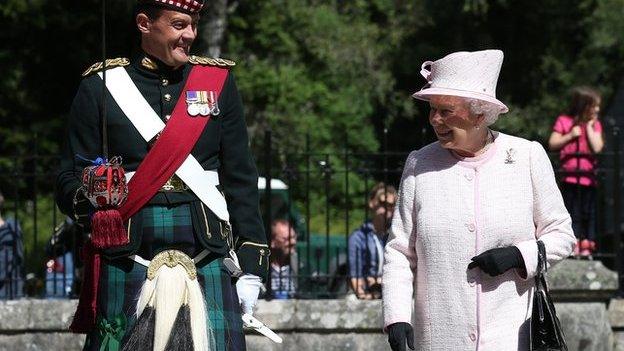Cameron and the Queen: Palace 'displeasure' over comments
- Published
Former PM David Cameron explains how he sought the Queen's help in Scottish independence vote
David Cameron's revelation that he sought help from the Queen ahead of the Scottish independence vote in 2014 has caused displeasure at Buckingham Palace, a source has said.
The former PM told the BBC he had asked whether the Queen could "raise an eyebrow" about the prospect of Scotland voting for independence.
The Queen later said people should "think carefully about the future".
Buckingham Palace has made no official comment on Mr Cameron's remarks.
The revelation is made in a two-part BBC documentary in which the former PM reflects on his time in Downing Street.
What was discussed with the Queen's officials was not "anything that would be in any way improper... but just a raising of the eyebrow even... a quarter of an inch", he says.
The former Tory leader also discusses the Scottish referendum in his book, which he has been publicising this week.
A source told the BBC "it serves no-one's interests" for conversations between the PM and the Queen to be made public .
"It makes it very hard for the relationship to thrive," they added.
Asked about the response from the Palace, Mr Cameron told the BBC's Jeremy Vine he had tried to give an "honest explanation" of his actions while he was PM.
"We have to set the context - at the time [Scotland's then-first minister] Alex Salmond was saying that the Queen would be a proud monarch of an independent Scotland and there was frustration around that and that was being put and nothing else was."
But he said he had "probably said as much or possibly too much" about his conversation with the monarch.
Scotland rejected independence by a margin of 55.3% to 44.7%, a result which Mr Cameron said left him "blissfully happy".
'Completely improper'
Alex Salmond: 'It's an astonishing thing to do, even more so to reveal'
Mr Salmond, who resigned as Scotland's first minister in the wake of the result, accused the former PM of "breaking every rule in the book" by trying to involve the Queen.
But he said the monarch appeared to remain neutral during the campaign, describing her 2014 comment about the future as "a pretty innocent remark".
"David Cameron was clearly trying to mobilise the Queen to help his political interest and that's not just completely improper, it's quite extraordinary that he should reveal it and boast about it," he told the BBC in an interview.
"I'm not surprised that the Palace appears to be extremely displeased with the former prime minister."
At First Minister's Questions in Holyrood, Nicola Sturgeon was asked whether she was concerned about the Queen being asked to interfere in a potential second independence referendum.
"I think the revelations - if I can call them that - from David Cameron say more about him than they do about anybody else, and really demonstrate the panic that was in the heart of the UK government in the run-up to the independence referendum five years ago," she said.
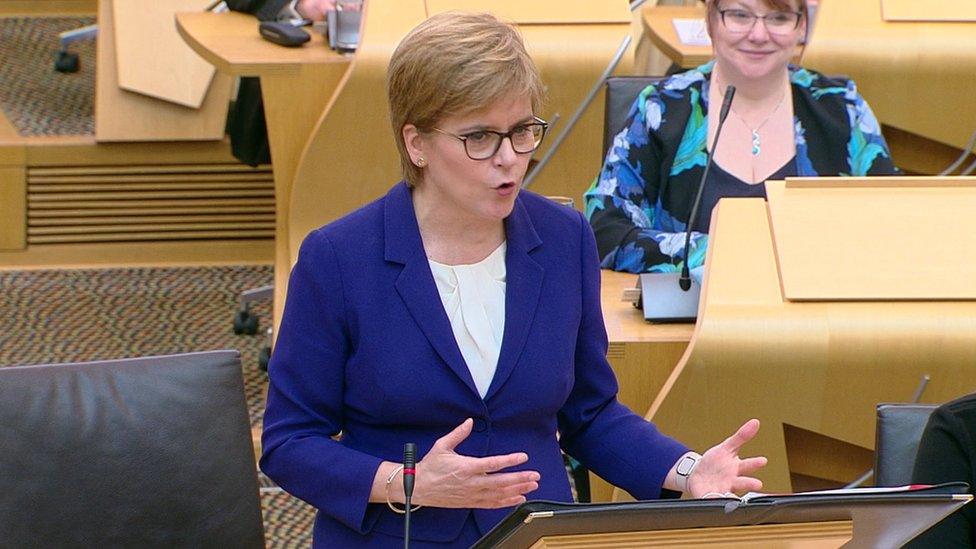
Prime Minister Boris Johnson would not be drawn on the issue.
"Not only do I not comment on conversations that I may have held with Her Majesty, but I don't comment on conversations she may have held with anybody else," he told reporters in Wiltshire.
Labour leader Jeremy Corbyn said it was "improper" to ask the Queen to become involved in the independence referendum.
"I don't think she should be asked to be involved in political decisions," he said.
"I wouldn't ask the Queen to get involved. It's not her job - she's the head of state. She is not the head of government or the political process in Britain… and she knows that as well. "


Just as the first rule of Fight Club is that you do not talk about Fight Club, the first rule of the relationship between the prime minister and the Queen is that you never, ever talk about the relationship between the PM and the Queen.
A Buckingham Palace source told the BBC that there was an amount of displeasure at David Cameron's comments.
You can probably read that as cold fury. Not just because he has broken the first rule. But because he has made it painfully clear that in 2014 he used the Queen for his own political purposes. And that she and her advisors thought that was OK.
The revelation comes as her suspension of Parliament - a suspension made on the effective instruction of Boris Johnson - comes under unprecedented scrutiny in the Supreme Court.
The two cases are very different, but they both highlight the dark greys of the Queen's constitutional position, the discretion she has or lacks, under extraordinary circumstances, to speak out and act.

It is not the first time Mr Cameron has been accused of indiscretion in his dealings with the Queen.
Mr Cameron apologised to the monarch in 2014 after he was overheard saying she "purred" on hearing the result of the Scottish referendum.
He said talking about her reaction had been a "terrible mistake".
- Published15 September 2019
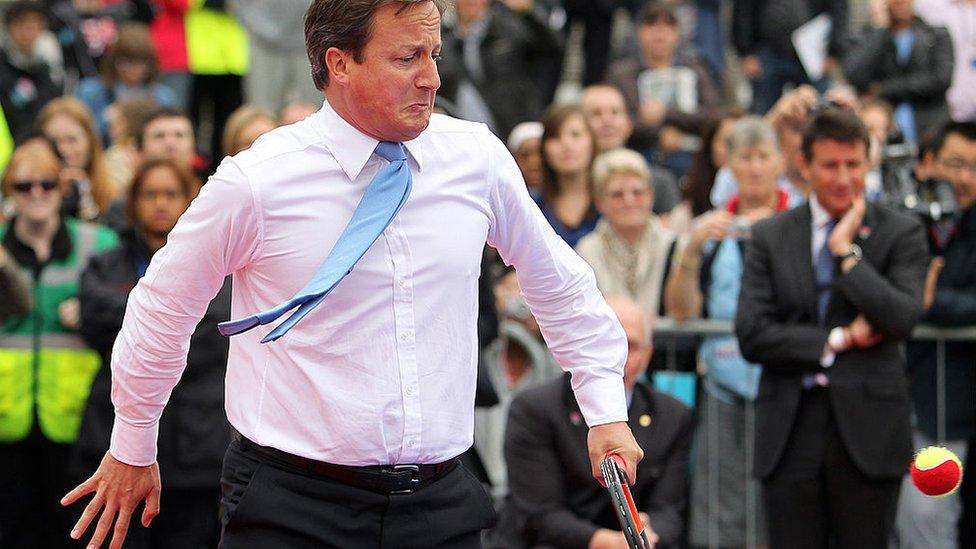
- Published19 September 2019
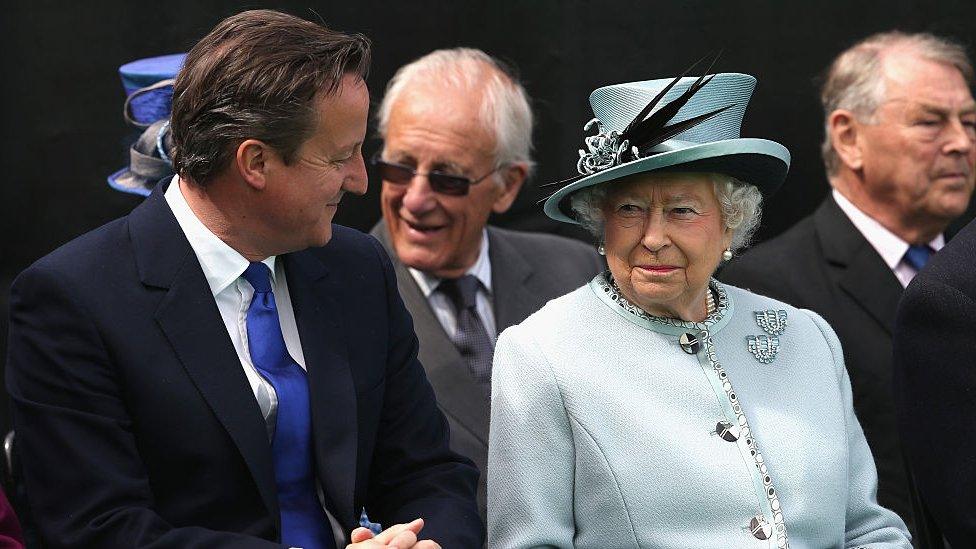
- Published25 September 2014
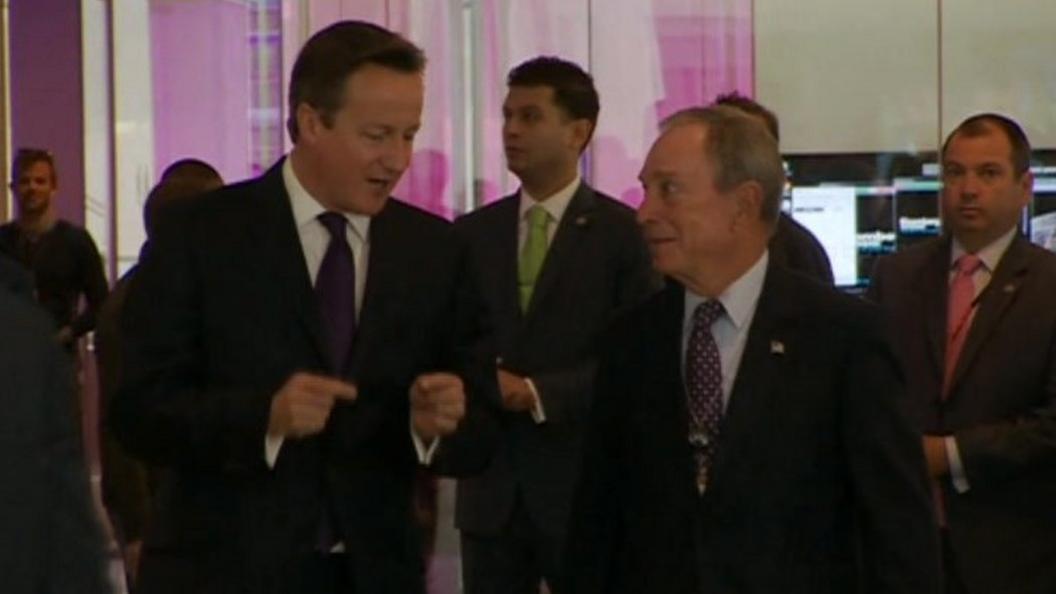
- Published19 September 2014
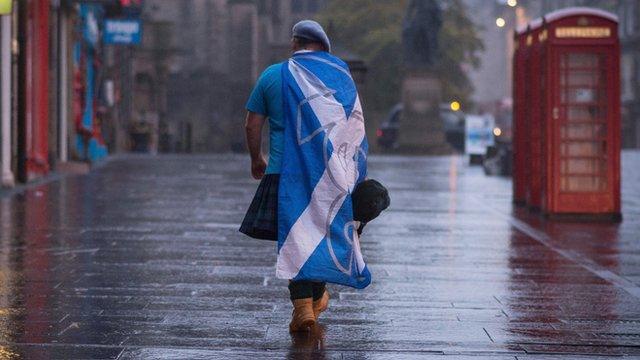
- Published14 September 2019
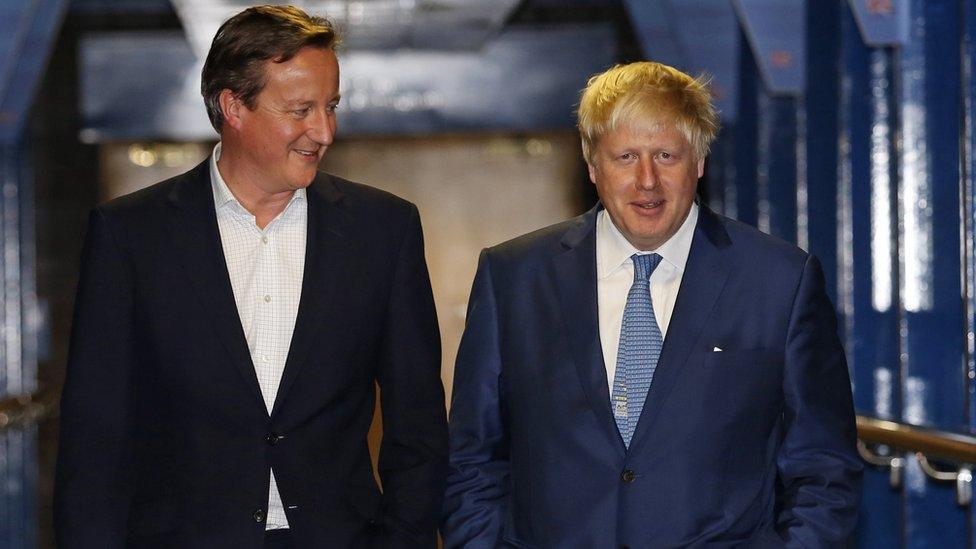
- Published14 September 2014
